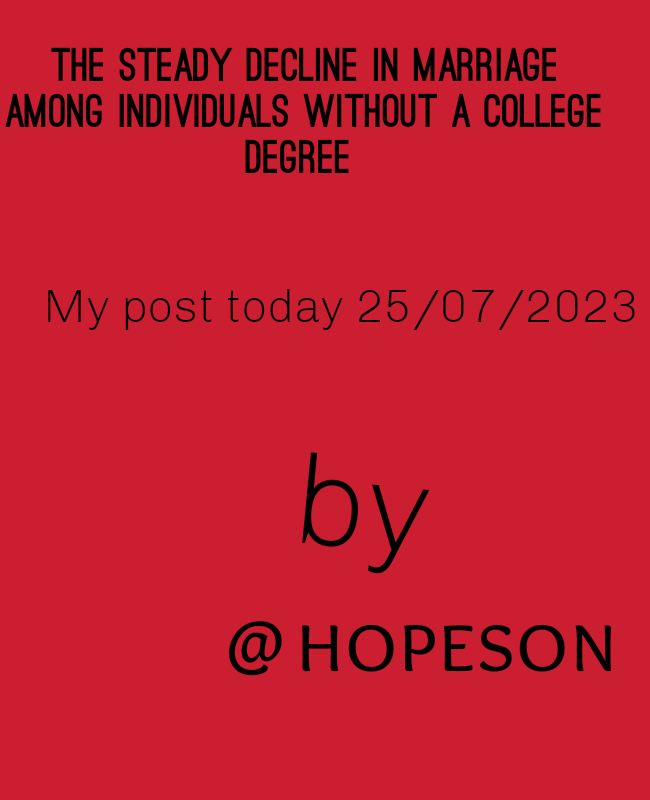
The steady decline in marriage among individuals without a college degree is a complex social trend that has been observed in many developed countries over the past few decades. While there are multiple factors contributing to this decline, some key reasons can be identified:
Economic Factors: Economic changes, such as the decline of manufacturing jobs and the growth of the service sector, have led to reduced job opportunities and lower wages for individuals without a college degree. Financial instability can make marriage appear less feasible or desirable, as it may be difficult to provide for a family or maintain a certain standard of living.
Changing Gender Roles: The rise of women in the workforce and increased gender equality have transformed traditional gender roles. Women are now more likely to pursue higher education and career opportunities, which can lead to delayed marriage or a preference for non-traditional relationship structures.
Cultural Shifts: There has been a general shift in societal attitudes towards marriage, with greater emphasis on individualism, personal fulfillment, and independence. People are increasingly prioritizing self-development, career advancement, and personal freedom, which can lead to a delay in or avoidance of marriage.
Cohabitation and Alternative Relationship Structures: Cohabitation has become more socially acceptable and prevalent, offering an alternative to marriage for couples who prefer not to formalize their relationships. The rise of cohabitation, along with the acceptance of non-marital relationships, can contribute to lower marriage rates.
Education and Values: Higher education is often associated with increased exposure to diverse ideas and values, which can shape attitudes towards marriage. College-educated individuals may be more likely to prioritize personal growth, egalitarian relationships, and delayed family formation.
It is important to note that the decline in marriage among individuals without a college degree is not necessarily an indicator of personal failure or societal decline. Marriage rates vary across different socioeconomic groups and cultural contexts, and there are many successful and fulfilling alternative relationship structures and life paths available to individuals.